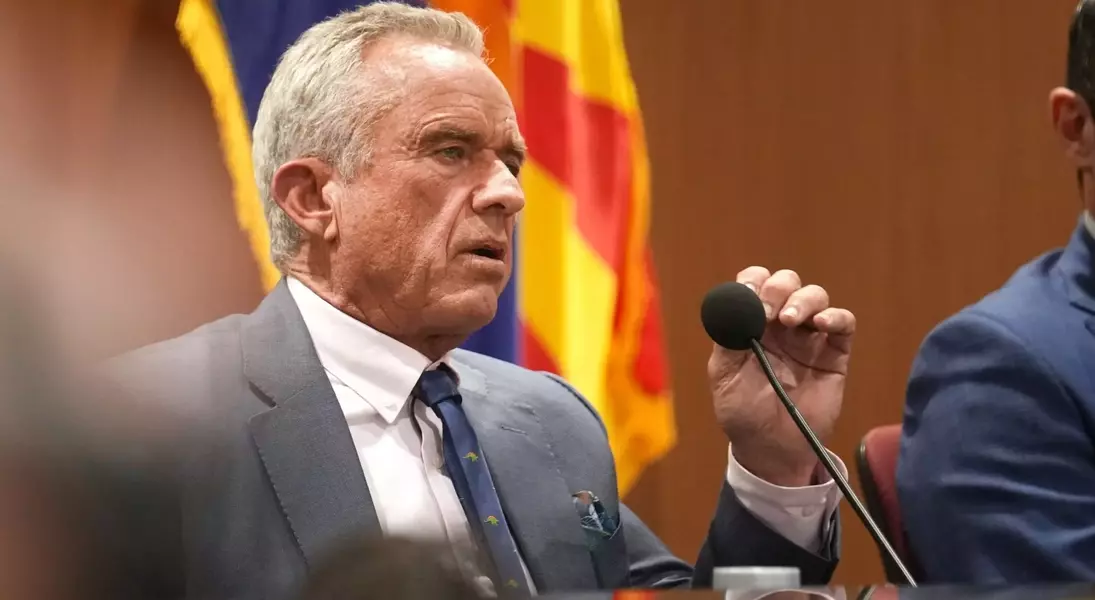
A recent tribal self-governance conference in Arizona highlighted the complexities of federal-tribal relationships, focusing on health care innovations, food sovereignty, and the challenges posed by shifting political landscapes. Secretary of Health and Human Services Robert F. Kennedy Jr., engaged in discussions with tribal leaders about leveraging artificial intelligence for health care delivery and addressing chronic health issues within Native American communities. Despite skepticism from attendees regarding AI's role in health care, Kennedy emphasized its potential benefits. Additionally, the conference underscored the importance of maintaining treaty obligations and fostering self-determination among tribes amidst evolving federal policies.
During his visit to the Gila River Indian Community, Kennedy also addressed the impact of processed foods on tribal health and reaffirmed federal commitments to preserving critical infrastructure for Indian Health Services. His remarks echoed historical calls for self-determination, drawing parallels between past and present efforts to empower tribal governance. The discussion extended beyond health care to include education, economic development, and the preservation of cultural heritage, reflecting ongoing challenges faced by Native American communities in navigating federal policies.
Revitalizing Tribal Health Care Systems
Secretary Kennedy’s dialogue at the 2025 Tribal Self-Governance Conference centered on innovative approaches to improve health care delivery in tribal communities. While emphasizing the significance of traditional diets and their role in combating chronic diseases, Kennedy proposed integrating artificial intelligence into tribal health systems. This suggestion sparked debate among attendees who expressed concerns over the feasibility and acceptance of such technology. Nonetheless, Kennedy argued that AI could enhance diagnostic accuracy and provide round-the-clock medical support, potentially reducing costs and improving outcomes.
Artificial intelligence presents an intriguing opportunity to transform health care services in tribal regions. Kennedy cited a demonstration involving a robotic nurse as evidence of AI's potential to revolutionize patient care. By automating routine tasks and offering continuous assistance, these technologies could alleviate burdens on understaffed facilities. However, critics questioned whether such advancements align with the values and needs of indigenous populations. Despite this resistance, Kennedy remained optimistic about piloting AI-driven initiatives in collaboration with tribal leaders. He acknowledged the necessity of tailoring solutions to fit the unique circumstances of each community, ensuring that technological integration respects cultural sensitivities and enhances existing frameworks rather than replacing them.
Promoting Food Sovereignty and Self-Determination
The conference further explored the intersection of food security and tribal autonomy, highlighting disparities in access to nutritious food across Native American reservations. Kennedy drew attention to alarming statistics indicating widespread food insecurity in counties predominantly inhabited by Native Americans. Apache County in Arizona serves as a stark example, where over one-fifth of the population struggles with limited access to affordable and healthy food options. Addressing this crisis requires rethinking current food systems and prioritizing the reintroduction of indigenous diets rich in natural ingredients.
Food sovereignty emerged as a pivotal theme during discussions led by Kennedy and other tribal representatives. By advocating for the restoration of traditional foods, participants aimed to combat prevalent health issues such as diabetes and obesity. Chairman Buster Attebery of the Karuk Tribe exemplified successful strategies through his tribe’s operation of gardens supplying fresh produce to elders. Such initiatives not only promote physical well-being but also foster communal bonds and preserve cultural heritage. Furthermore, Kennedy stressed the federal government’s responsibility to uphold treaty obligations, providing necessary resources and support to facilitate these transformative efforts. As tribes navigate the complexities of modern governance, partnerships rooted in mutual respect and shared goals will be essential in achieving lasting improvements in health and quality of life.
